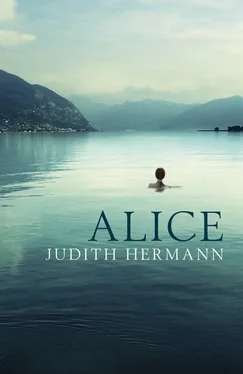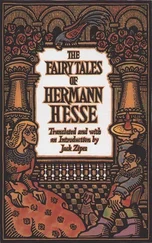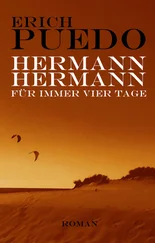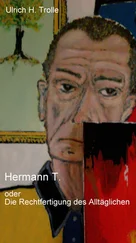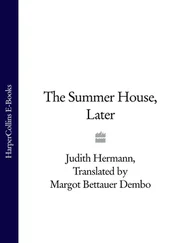Judith Hermann - Alice
Здесь есть возможность читать онлайн «Judith Hermann - Alice» весь текст электронной книги совершенно бесплатно (целиком полную версию без сокращений). В некоторых случаях можно слушать аудио, скачать через торрент в формате fb2 и присутствует краткое содержание. Год выпуска: 2011, Издательство: Clerkenwell, Жанр: Современная проза, на английском языке. Описание произведения, (предисловие) а так же отзывы посетителей доступны на портале библиотеки ЛибКат.
- Название:Alice
- Автор:
- Издательство:Clerkenwell
- Жанр:
- Год:2011
- ISBN:нет данных
- Рейтинг книги:3 / 5. Голосов: 1
-
Избранное:Добавить в избранное
- Отзывы:
-
Ваша оценка:
- 60
- 1
- 2
- 3
- 4
- 5
Alice: краткое содержание, описание и аннотация
Предлагаем к чтению аннотацию, описание, краткое содержание или предисловие (зависит от того, что написал сам автор книги «Alice»). Если вы не нашли необходимую информацию о книге — напишите в комментариях, мы постараемся отыскать её.
Alice — читать онлайн бесплатно полную книгу (весь текст) целиком
Ниже представлен текст книги, разбитый по страницам. Система сохранения места последней прочитанной страницы, позволяет с удобством читать онлайн бесплатно книгу «Alice», без необходимости каждый раз заново искать на чём Вы остановились. Поставьте закладку, и сможете в любой момент перейти на страницу, на которой закончили чтение.
Интервал:
Закладка:
See you later, Lotte said. Thanks for coming with me. She climbed up the stairs, with deliberate haste, while the ringing in the house did not stop, the sound coming through the closed shutters. They could still hear it on their way to the yellow house, and it stopped only as Alice took the key from the flower box outside the kitchen window. Anna sat down on the bench, stretched out her legs and closed her eyes. Alice went into the kitchen and through the dining room and the living room to the French doors, pushed back the bolt, opened the doors wide, and stepped out on the terrace. Lizards darted across the tiles. Two butterflies rose up. The Romanian, close behind her, put his hand between Alice’s shoulder blades. They stood there like that for a moment, undecided. Listening. Heard the car engine start up again, saw Lotte driving along the dirt road, past the goats, and through the gate. Then she was gone. Anna came out of the garden to the terrace stairs, and Alice took a step to one side.
Does that mean something. Anna said. What does it mean?
In the afternoon Alice retired to Conrad’s room. She closed the shutters and lay down on the narrow bed without pulling the blanket over herself. It was dark except for one spot of light the size of a penny, a knothole through which the afternoon sun came in. The spot of light was golden. It wandered slowly along under the table and across the red carpet with its woven black pattern. A sundial. Alice lay there, her eyes open. She was thinking: Conrad had lain on this bed in this room with the shutters closed, back then, more than thirty years ago, when he was younger and the children were still small and the house on the hill was still a barn full of sheep and goats, when he was the same age as Alice was now — he had seen this spot of light wandering just as Alice now saw it wandering. Back then he had seen the same thing Alice saw now. Something significant seemed to be concealed behind this simple detail, and she couldn’t immediately work out what it might be.
Something was going on outside; a car came, another drove away; the goats bleated excitedly and then fell silent again. Anna’s voice on the terrace, the voice of the Romanian. Wind in the ivy outside the window. Very far away, on the lake, the howling roar of a speedboat motor. The Romanian and Anna wanted to go shopping. Lotte would return eventually. If something had happened Alice would find out, whatever it might be, and whether she wanted to or not.
Alice fell asleep. When she woke up again the spot of light was gone. She groped her way to the window and pushed open the shutters; the mountains on the other side of the lake glowed a faint pink; the sun was gone but it was still light.
Anna was lying on the bed, on the coverlet printed with fig leaves. She was lying on her side, sound asleep. Alice tiptoed downstairs and found the Romanian in the kitchen. They had obviously been shopping; the refrigerator was crammed full, on the pantry shelves there were many small bottles containing a red liquid, net bags of lemons.
What’s that?
Aperol.
It’s what we were supposed to drink in Salò.
In the freezer compartment, water was freezing in little pink and blue moulds, hearts and shells. The whole kitchen smelled of basil, olives, sage.
This kitchen has everything you need, the Romanian said. This family has thought of everything. Lotte’s thought of everything. Would you like a coffee?
Oh yes, Alice said. I’d like that.
Her eyelids felt swollen, and she was tired, as if drugged; it was impossible to leave the Romanian. She would have liked to cling to him, she had to stay with him in the kitchen, to be near him. She pulled a stool over to the kitchen door and sat down, half in, half out, her back against the wall. Countless ants were scurrying across the threshold. The Romanian put a cup of coffee into her empty hand. She gazed out into the garden, towards the evening-tinged mountains, back to the kitchen and the Romanian who, barefoot on the red and white tiles, was cutting the melon Conrad had put into the refrigerator, first in half, then quarters, and then slices. The juice of the melon ran over his wrists. He was humming. Io cerco la Titina, Titina, Titina . A little old man came walking up the dirt road. Barely lifting his feet. Walked past Lotte and Conrad’s house, on to the yellow house, towards them.
Someone’s coming, Alice said.
The Romanian nodded. I think it’s the gardener. He was with the goats before and mowing the lawn, and he took something up to Lotte.
Alice got up. The old man was walking slowly and calmly, his eyes fixed on the ground, his hands in the pockets of his black trousers. He wore a sleeveless white undershirt and a straw hat. Alice closed her eyes. Maybe he’d be gone when she opened them again. Fata Morgana. He was the messenger bringing news. She opened her eyes; by then he was nearly at the door.
The Romanian soundlessly put the knife with which he’d been slicing the melon on the cutting board. He wiped his hands and wrists on his torn jeans. Alice looked at him. Then she turned and looked at the old man. The old man took his hands out of his pockets and with his left hand took off his straw hat. Snow-white hair. He said, Lui è morto. Signor Conrad è morto .
What did he say, Alice said. She had understood what he said; but even if she hadn’t understood the words, she would have understood the gestures he made: the old man, with the straw hat under his arm, had raised his hands, showing them the calloused hard palms. Empty and white.
Alice stepped out into the garden. The Romanian did too. The old man moved aside, giving them room. The three of them stood next to each other. The old man said something; the Romanian nodded, Si, si , yes, yes, capito , he had understood. The old man shook hands with him, then with Alice. With a motion of his head he took in everything around him: the olive grove, the wall, the house, the oleander, the orange trees, the silent, slender cypress.
He said, Vita brutta .
Again Alice said, What did he say.
And the Romanian replied, repeating what he said, He said — Ugly life. That’s what he said.
Next morning Alice went up to Lotte’s house.
The three outside doors all led into the same room. The room was large and dim; behind some screens a bed perhaps, perhaps it was the bed Conrad had been lying in with a fever, a tropical infection. His heart had beaten too fast for too long. Lying in this bed he had heard them arrive, Alice and the friends he didn’t know. The Romanian and the dark Anna, both of whom he never got to know, which was too bad but didn’t matter at all. Fever. Alice’s voice through the half-open door. We’re here now, Lotte, and we’re very happy to be here. Lotte’s voice.
Lotte was upstairs. Alice went up the spiral staircase to the upper floor; the shutters were wide open, the glass doors were pushed aside, everything was light and bright, and the view extended far across the lake. Lotte was sitting at a table by the window. A German newspaper lay on the table. A silver letter opener. A bowl of eggs, a bowl of zucchini blossoms. Lotte, pointing to the eggs and the blossoms, said, Fulvio brought them, our gardener; look, isn’t that nice? She was pale, tall, and tired. She sat ramrod straight and looked questioningly at Alice for a while, as if waiting for something to occur to her, as if trying to remember something. Then it came to her — Alice, dear. She pushed the chair next to her away from the table and Alice sat down. They sat like this, next to each other, in silence for a while. Then Alice said, Lotte, you must tell us what we should do. Should we leave or stay, I don’t know what we should do.
Oh, you ought to stay a little longer, Lotte said. Stay. It’s good for me if you stay, why should you leave now. Your friend is very nice. He can take me to the hospital, and pick me up. You ought to stay. Conrad would have wanted that too.
Читать дальшеИнтервал:
Закладка:
Похожие книги на «Alice»
Представляем Вашему вниманию похожие книги на «Alice» списком для выбора. Мы отобрали схожую по названию и смыслу литературу в надежде предоставить читателям больше вариантов отыскать новые, интересные, ещё непрочитанные произведения.
Обсуждение, отзывы о книге «Alice» и просто собственные мнения читателей. Оставьте ваши комментарии, напишите, что Вы думаете о произведении, его смысле или главных героях. Укажите что конкретно понравилось, а что нет, и почему Вы так считаете.
